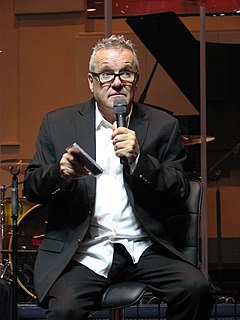A Quote by John Newton
Not only the guilt, but the love of sin, and its dominion, are taken away, subdued by grace, and cordially renounced by the believing pardoned sinner.
Related Quotes
Ah! sinner, remember this, there is no way on earth effectually to be rid of the guilt, filth, and power of sin, but by believing in a Saviour. It is not resolving, it is not complaining, it is not mourning, but believing, that will make thee divinely victorious over that body of sin that to this day is too strong for thee, and that will certainly be thy ruin, if it be not ruined by a hand of faith.
There are actually only ever two pastoral problems you will ever encounter. The first is this: persuading those who are under the dominion of sin that they are under the dominion of sin. That's the task of evangelism. And [second], persuading those who are no longer under the dominion of sin that they are no longer under the dominion of sin because they're Christ's.
Guilt simply says that you are a sinner. And the feeling of shame simply shows you that you need not be a sinner, that you are meant to be a saint. If you are a sinner it is only because of your unconsciousness; you are not a sinner because the society follows a certain morality and you are not following it.
When a man is saved by divine grace, he is not wholly cleansed from the corruption of his heart. When we believe in Jesus Christ all our sins are pardoned; yet the power of sin, albeit that it is weakened and kept under by the dominion of the new-born nature which God doth infuse into our souls, doth not cease, but still tarrieth in us, and will do so to our dying day.
Faith from, its essential nature implies the fallen state of man, while it recognizes the principles of the covenant of grace. It is itself the condition of that covenant. It is a grace which is alike distinguished from the love of angels and the faith of devils. It is peculiar to the returning sinner. None but a lost sinner needs it; none but a humbled sinner relishes it.
The cliché, God hates the sin but love the sinner, is false on the face of it and should be abandoned. Fourteen times in the first fifty Psalms alone, we are told that God hates the sinner, His wrath is on the liar, and so forth. In the Bible, the wrath of God rests both on the sin (Romans 1:18ff) and on the sinner (John 3:36).
Make friends with guilt. Guilt is a beautiful emotion that alerts us when something is wrong so that we may achieve peace with our conscience. Without conscience there would be no morality. So we can greet guilt cordially and with acceptance, just as we do all other emotions. After we respond to guilt, it has done its job and we can release it.
Lower the Law and you dim the light by which man perceives his guilt; this is a very serious loss to the sinner rather than a gain; for it lessens the likelihood of his conviction and conversion. I say you have deprived the gospel of its ablest auxiliary [its most powerful weapon] when you have set aside the Law. You have taken away from it the schoolmaster that is to bring men to Christ . . . They will never accept grace till they tremble before a just and holy Law. Therefore the Law serves a most necessary purpose, and it must not be removed from its place.



































